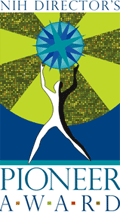The NIGMS program supporting research on the evolution of infectious diseases has merged with the ecology of infectious disease program that has been supported primarily by the National Science Foundation and NIH’s Fogarty International Center to create a new funding opportunity announcement.
Ecology and Evolution of Infectious Diseases (EEID), also sponsored by the U.S. Department of Agriculture, recognizes that infectious disease systems offer a perfect model for studying how context (i.e., ecology) and change (i.e., evolution) interact as organisms adapt to each other. The intersection of ecology and evolution also is relevant to many real-world problems, such as finding new vaccines or understanding how pathogens emerge.
EEID research will advance broad, conceptual knowledge that reaches beyond specific systems and that may be useful for understanding public, agricultural or ecosystem health; natural resource use and wildlife management; and/or economic development.
NIGMS’ particular interest is in the integration of ecological and evolutionary dynamics to address, for example:
- The role of social influences on the susceptibility of individuals or populations,
- Interactions between pathogenic and nonpathogenic organisms and their mutual hosts,
- The emergence of pathogens from nonpathogenic populations,
- Host switching, and
- The evolution and maintenance of drug resistance.
Applications should combine field and laboratory research with mathematical, statistical and computational modeling. We encourage proposals from collaborative teams with expertise from diverse disciplines. Applications are due by December 7 and will be submitted to and reviewed by NSF. NIGMS will consider funding those that score well and are within the Institute’s mission areas.


 NIH recently conducted an evaluation of the short-term outcome of the NIH Director Pioneer’s Award program, which started in 2004 and is managed by NIGMS. The report was positive and confirmed that the research supported by the program truly has been pioneering, not only in pursuing highly creative and often unconventional approaches but also in leading to additional “high-risk, high-reward” programs at NIH and other funding agencies.
NIH recently conducted an evaluation of the short-term outcome of the NIH Director Pioneer’s Award program, which started in 2004 and is managed by NIGMS. The report was positive and confirmed that the research supported by the program truly has been pioneering, not only in pursuing highly creative and often unconventional approaches but also in leading to additional “high-risk, high-reward” programs at NIH and other funding agencies.
